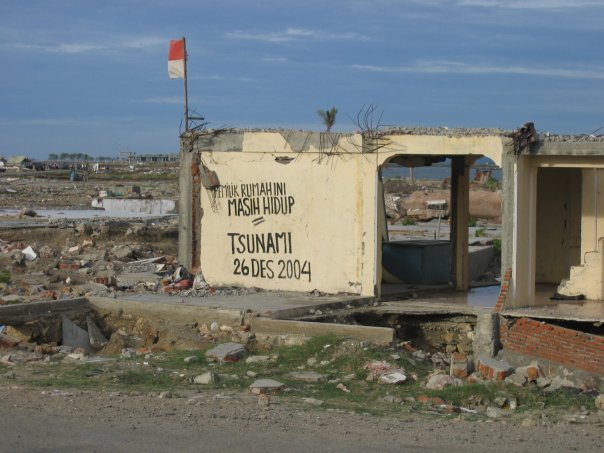26th December 2014 8.46 am, El Hierro
The past nine years I have spoken with survivors. For most of them the tsunami was not a singular event, but in fact it violently pushed them into a totally different temporality: tsunami time.
Ten years after the Indian Ocean tsunami and the earthquake many wish to know if things got better. Since my first visit to Aceh in 2006 I’ve refused to give any simple answers to that. I’ve used the past nine years to question the simplistic ideas of reconstruction, or building back better, as the post-tsunami aid efforts became to known.
The question of better haunts the aid workers, it haunts the funders, it haunts the media, and researchers like myself. But in many ways it also haunts the survivors.
In Aceh, after the tsunami it was commonly explained that the tsunami happened due to the sins committed by the people. Only one week ago the female mayor of Banda Aceh suggested so. Her administration has used the past years to strengthen the punishments of those who do not live up to the expections of piousness and civil city (kota madani). Building Banda Aceh anew has been an active attempt to ‘build back better’ build an Islamic city comparable with that city it was believed to be in the golden years of Sultanate of Aceh, or Medina. History been reinvented and romaticized, used for justifying the emergence of post-tsunami politics that is yet to solve the bigger questions of justice, equality and prosperity for all.
With the focus on Islamic morals and piety, the city focuses on apperances and controlling religious behvior instead of drawing on other principles that would provide governance alternatives, such as equality for all, forgiveness and healing. Healing from the losses of the tsunami, 30 years of armed conflict and other silent atrocities that are not given names nor turned into media headlines.
My ethnographic research in the city of Banda Aceh speaks of the lives lived in the margins of the city, ways in which people live through their everydays in best possible ways despite their chronic poverty, feelings of outcast, or multiple ways they are being discriminated against due to their gender, sexuality, religious belief, ethnicity, ideology or appearance.
They actively engage in providing alternative visions for Aceh. These visions do not emerge from the halls of power, academic seminar halls or media outlets. They are echoed in places where the dust, dirt and filth gathers. They enact as reminders and mirrors of failures of humanity. Humanity that is celebrated today on the tenth anniversary of the Indian Ocean tsunami and earthquakes.

